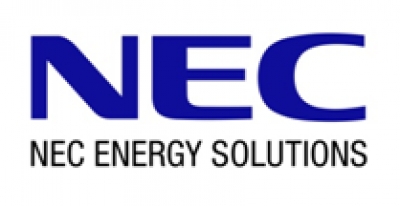Operating storage with knowledge of key factors optimizes its application
It is relatively easy for someone to go with the lowest cost grid energy storage providers. However, the total cost of ownership of storage can be significantly reduced if longer life batteries and intelligent controls are integrated. Many owners and operators of storage are leaving money on the table because their controls systems are not considering all the key variables.
This talk will explain why simple control of an energy storage medium is not sufficient when designing and managing an energy storage system. We have shown that almost all ancillary services deployed on the grid (frequency response and frequency regulation) can be successfully and economically accomplished with fast response grid storage systems. But many of these do not have clear metrics to determine the balance of cost of energy (energy storage media lifetime) versus the gain in the payment for supplying the service. As a result, the definition of ‘optimization’ will vary amongst implementations.
The control system must balance among the storage application’s technical requirements, business criteria like service payments and energy costs, the energy storage system utilization, and overall system sizing. Intimate knowledge of the relationship of all aspects of the location, market dynamics, grid service application, cell chemistry, cycle life and calendar life, and system configuration is required to determine the control algorithm that provides the most optimized solution.
If one is to economically and efficiently deploy a grid-connected energy storage solution, they must either understand each component or assign it to someone who does. This talk will review variables at each level from cell chemistry, to battery configuration, to battery aggregation in racks, to automated coordination across and within the components, and finally to intelligent control algorithms.
Presented by

Roger Lin,
Director, Product Marketing
Roger Lin is currently Director of Marketing at NEC Energy Solutions, formerly A123 Systems, where he leads all product management and marketing activities. With over nine years of experience in energy storage technologies and applications, he has held a variety of roles and was responsible for several successful product development efforts including A123's first hybrid vehicle battery, for Daimler's Orion VII hybrid bus, as well as its first product, the 26650 lithium ion cell. Prior to joining A123, he held roles in venture capital, business development, and materials science R&D. Roger received his Master of Engineering degree in Materials Science from MIT, his Bachelor of Science in Ceramic Engineering from Rutgers University, and is an inventor on nine United States patents.

Craig Rutfield,
Vice President, Software Engineering
Craig Rutfield has more than 25 years of experience in developing and managing large-scale, high-volume enterprise systems. He is currently the VP of Software Engineering at NEC Energy Solutions. He entered the energy sector in 2003 where he designed and led the development of the automated demand response system. More recently, he led the software architecture for National Grid's Smart Grid pilot. Previous to that, he was the VP of Software Engineering & Enterprise Architecture at Aclara Technologies, leading the development of their software products (meter data management, consumer engagement, meter communication, asset management) sold to over 400 utilities. His consulting engagements have included Consumer Powerlines and Doble Engineering as well as multiple start-ups in a CTO capacity. He is also a mentor and judge in cleantech competitions where he advises early stage start-ups. In addition to his professional experience, Craig earned his MBA from Worcester Polytechnic Institute's evening program, his MS Electrical Engineering from Northeastern University's evening division, and his BS in Computer & Systems Engineering from Rensselaer Polytechnic Institute.





